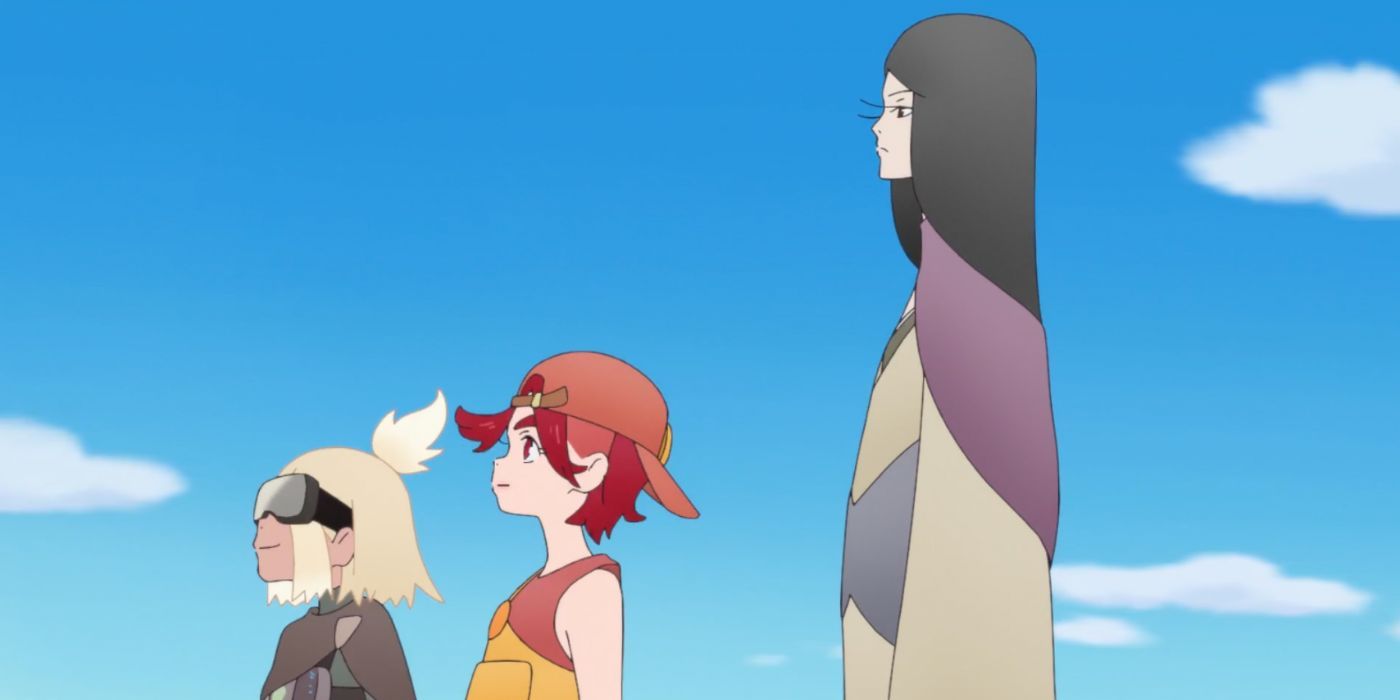The following contains major spoilers for Yurei Deco, now streaming on Crunchyroll.
Science SARU’s latest anime hit the summer 2022 season with a bang but left with barely a whisper. Episode 1 of Yurei Deco was colorful and posed enough thought-provoking questions that it looked like becoming an engaging anime to watch. As the episodes progressed, however, the anime began losing its footing as the world began unraveling.
Yurei Deco often felt like it wasn’t quite sure what it was trying to be, juggling numerous hats yet failing to execute any of them well. While the anime did have its rare moments of emotionality and shine, it was ultimately overwhelmed by its own ambition.
Yurei Deco’s Episodic Approach Led Nowhere
What is strange about Yurei Deco is that its middle episodes would’ve left new viewers thinking they were watching a slice-of-life title. Starting from Episode 4 with the birth of the Yurei Detective Club, the mystery of Phantom Zero took a back seat — even though the club was created for the purpose of figuring out who Phantom Zero was. Instead, the gang focused more on taking on random cases like finding a man’s avatar or tracking down a mysterious ramen cart.
There’s nothing inherently wrong with a slice-of-life angle, but Yurei Deco established a question that was meant to be the core plot point of its entire story. The anime eventually tried to tie it together by bringing all the characters the Detective Club had met back into the bigger picture, but it felt cheap. It also tried to bring Phantom Zero back, but it was executed poorly as the big reveal turned out to be an entirely new character in the finale. Injunction Jo’s motivation to pin the Zero Phenomenon on Hack and Berry felt shallow because there was so little time to explore her character.
Yurei Deco sprinkled interesting questions throughout about social media, censorship, monetizing love and government corruption. It was highly ambitious — perhaps too much so, as the anime didn’t have enough episodes to properly explore its different themes. Censorship was the only theme it properly dove into, with its discussion of Berry’s parents working in the Customer Center and deleting any data that had to do with Phantom Zero. But Yurei Deco‘s solution to its censorship problem wasn’t exactly thoughtful; the solution to combat censorship was to ban it altogether. It’s an extremely childish outcome, which makes sense since Jo ultimately put a child in charge.
Meanwhile, Finn’s backstory highlighted how marginalized communities are oppressed by people in power. When it was revealed that people were getting sick due to the government’s lack of waste management, it was disappointing to see a lack of repercussions in the final episode. In fact, responsibility was turned back onto the marginalized community to undo what the Customer Center had done: they were the ones cleaning up the waste and their incentive to do so was to earn Love. The cycle was not actually broken.
One of the story’s more interesting discussions happened in Episode 12, when Jo spoke about free will being non-existent. She believed human lives were dictated by algorithms and that human hearts were simply automated formulas reacting to stimuli. To Jo, truth and fiction are the same thing once external context is removed. In the digital society of Yurei Deco, it was strange that this topic wasn’t broached much earlier in the series — especially when Love had a monetary value and was a symbol of social status.
Yurei Deco’s Characters Were Woefully Underdeveloped
Despite being Yurei Deco‘s two protagonists, neither Berry nor Hack were particularly engaging. Berry seemed to facilitate between being immature and having the occasional insightful thought. Hack was the textbook quirky character, using peculiar phrases like “Glitchy-witchy” which was cute until it got overused. Hack was obnoxious to the point where she was verging on being unlikable, and never evolved beyond that. The rest of the crew was barely developed and felt like they were created, to steal Finn’s words, for a single purpose: to fill out the cast.
As the last character to be introduced — and the main antagonist — Jo was disappointing. She was dropped solely for the purpose of answering the question, “Who is Phantom Zero?” It’s a shame, as Jo had so much potential to be developed into a well-rounded character. As someone who has been stuck at Mark Twain for years and operating the system for so long, she carried a profoundly sad air around her. This was someone who’d seen it all and had most likely lost all hope in humanity ever having any kind of free will in a digital society. So much could have been explored about who she was and why she decided to find another person to take on her role, but Hack interrupted it by yawning and the moment was lost.
The most disappointing factor in Yurei Deco was that if you removed all mention of Tom Sawyer and replaced it with other names, the story would not have changed at all. There was no direct linkage between the two works; as a result, it was simply quirky without any deeper purpose or meaning.
